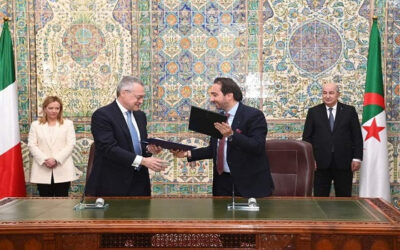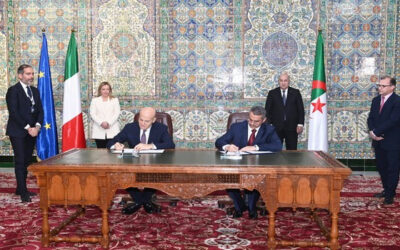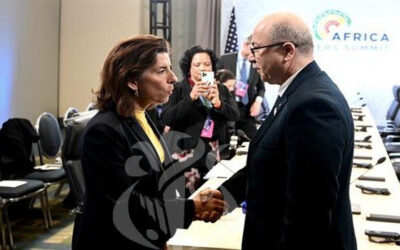OPEC: Algeria played key role in rebalancing oil market
Съжаляваме, тази публикация е налична само на Английски (Сащ), Френски и Арабски.

APS : Wednesday, 04 January 2017
ALGIERS-The Organization of Oil Exporting Countries (OPEC) has regained its role as regulator of the oil market through an approach designed to stem oil price decline, in which Algeria has played a key role with a view to reaching a consensus to reduce supply.
Following nearly two years of intense discussions efforts with the main global producers on the need for consultation between OPEC and non-OPEC countries, Algeria managed to bring into fruition its initiative during an extraordinary meeting September in Algiers, which resulted in a historic agreement to cut production to 32.5-33 million barrels per day.
This decrease in production is likely to absorb the surplus of production, particularly generated by an increase in the US oil production.
The Algiers meeting’s major challenge consisted in ironing out differences within the OPEC, particularly between Saudi Arabia and Iran in order to reach a consensus likely to increase oil prices and favour the adhesion of other non-OPEC producers.
The success of the Algiers meeting was the fruit of Algeria’s initiative launched in early 2015 when oil price was at its lowest level.
As part of this consensual approach, President of the Republic Abdelaziz sent several members of the government to convey messages to Saudi Arabia, Sultanate of Oman, Azerbaijan, Kazakhstan, Mexico, Russia, Colombia and members of the African Petroleum Producers Association (APPA), which includes Nigeria, Gabon, Angola, Congo and Equatorial Guinea.
Besides, Algeria played a very active role in the conclusion of the historic Algiers agreement during the 17th OPEC ministerial meeting on 30 November in Vienna.
Algeria, which chaired the high-level technical committee set up by OPEC during the Algiers meeting, made a suggestion to cut OPEC’s production by 1.1 million barrels per day and non-OPEC’s one by 600,000 barrels per day.
This suggestion was adopted by the OPEC during its meeting in Vienna, which was crowned by an agreement to cut production by 1.2 million barrels and cap it to 32.5 barrels per day as of 1 January 2017 for six renewable months.
Thanks to the Algiers agreement, OPEC regained its monitoring role it had lost since many years, stressed Energy Minister, Noureddine Boutarfa.
The agreement to decrease production within the OPEC was enhanced after the adhesion of 11 non-OPEC countries, which pledged to reduce their production as from January 2017 by 558,000 barrels per day and thus withdraw nearly 1.8 million barrels per day from the market. The aim of this agreement consists in rebalancing the global oil market.
Following the entry into force of this agreement, OPEC expects an increase of costs by mid-May in 2017.
In a recent statement, Boutarfa said he was convinced that the non-OPEC countries will fulfil their commitments to reducing their production by 588,000 barrels per day as from January, following their adhesion to the production limitation agreement with OPEC countries.
Категории
Последни публикации
- (English) Meeting of the Ambassador in Sofia with the Mayor of Sofia
- (English) Mr Attaf receives the Director General of the ILO
- (English) Algeria/South Africa: Second session of political consultations
- (English) Minister Attaf takes part in a discussion session on the implementation of the UN’s ten-year objectives for sustainable energy
- (English) Mr Attaf discusses, in New York, with UN Secretary General






